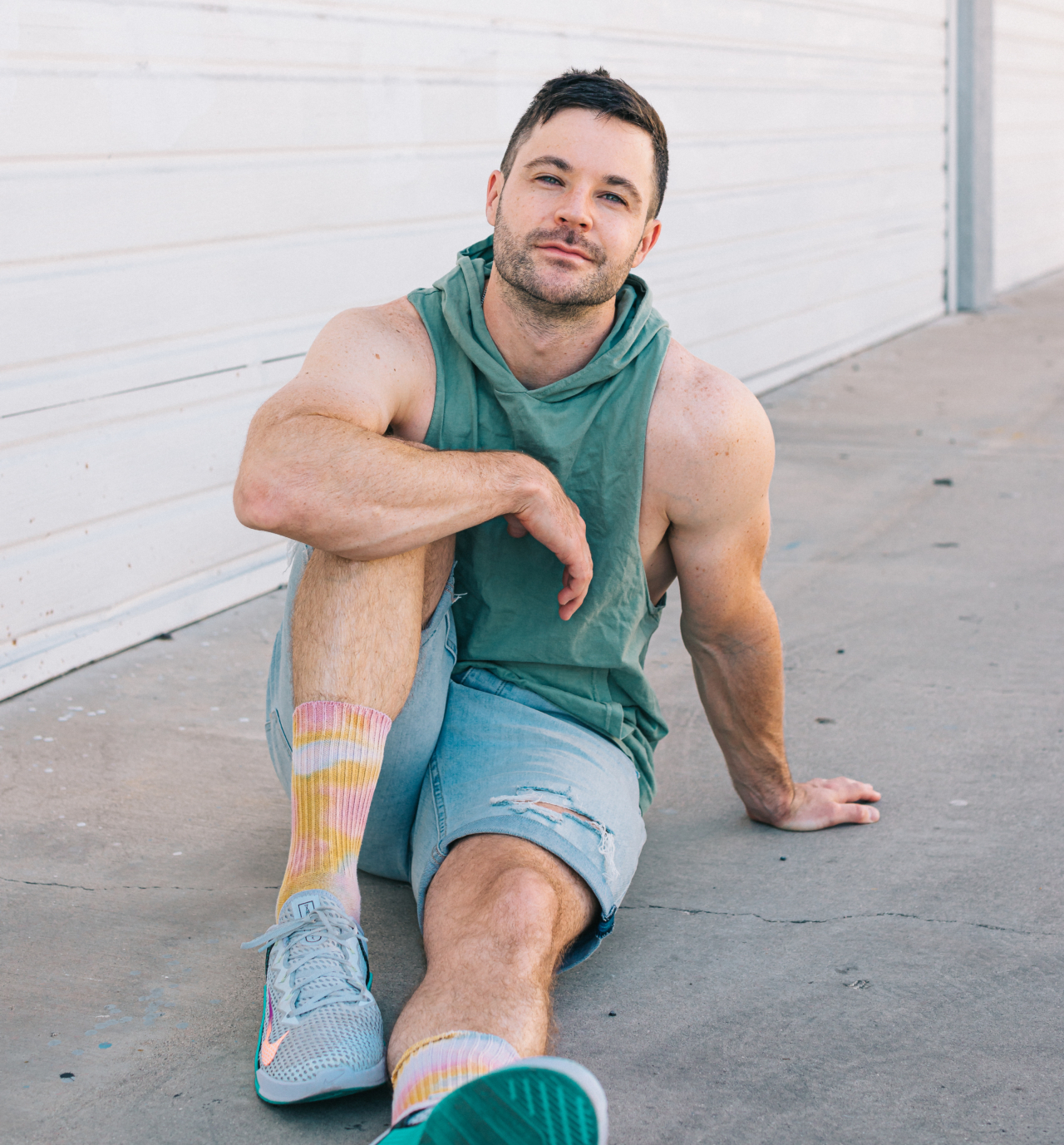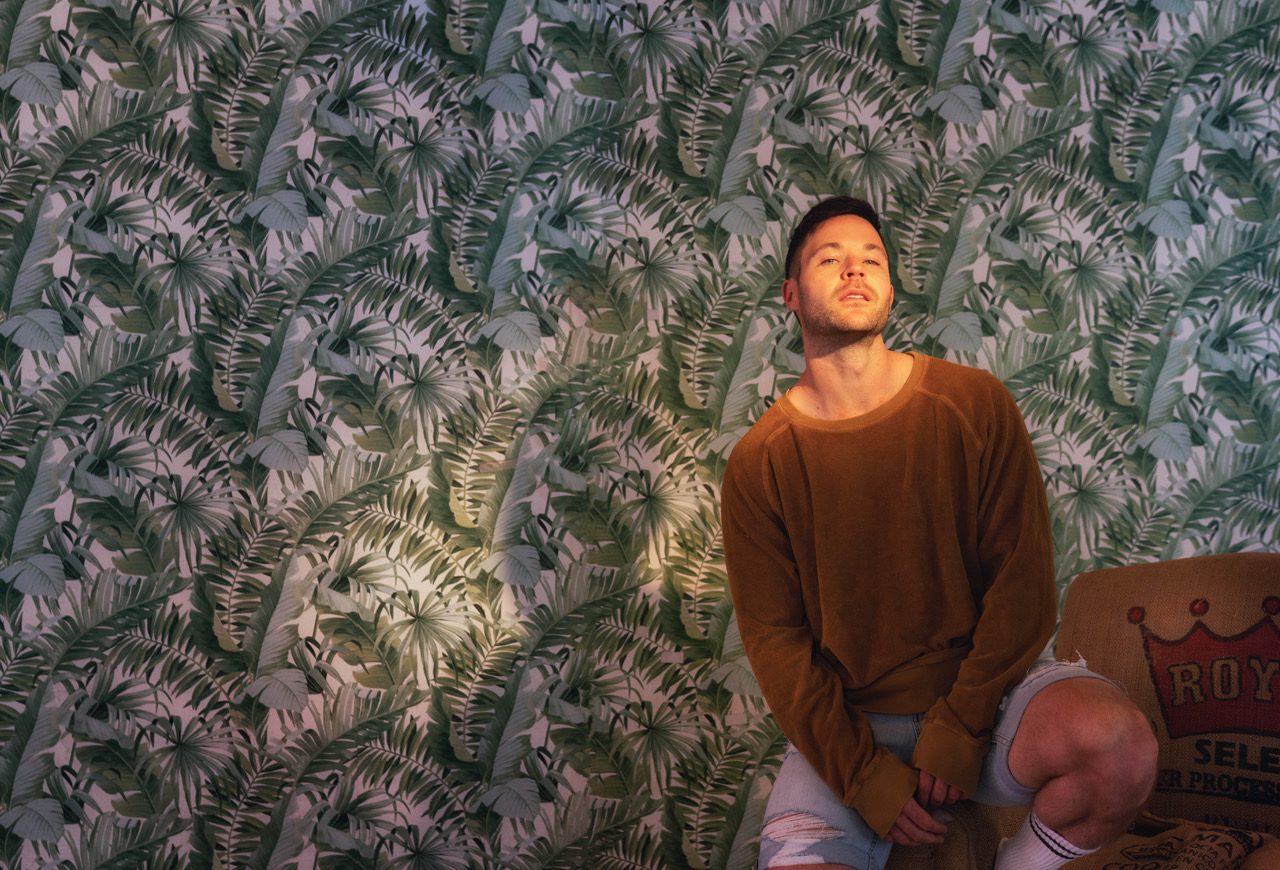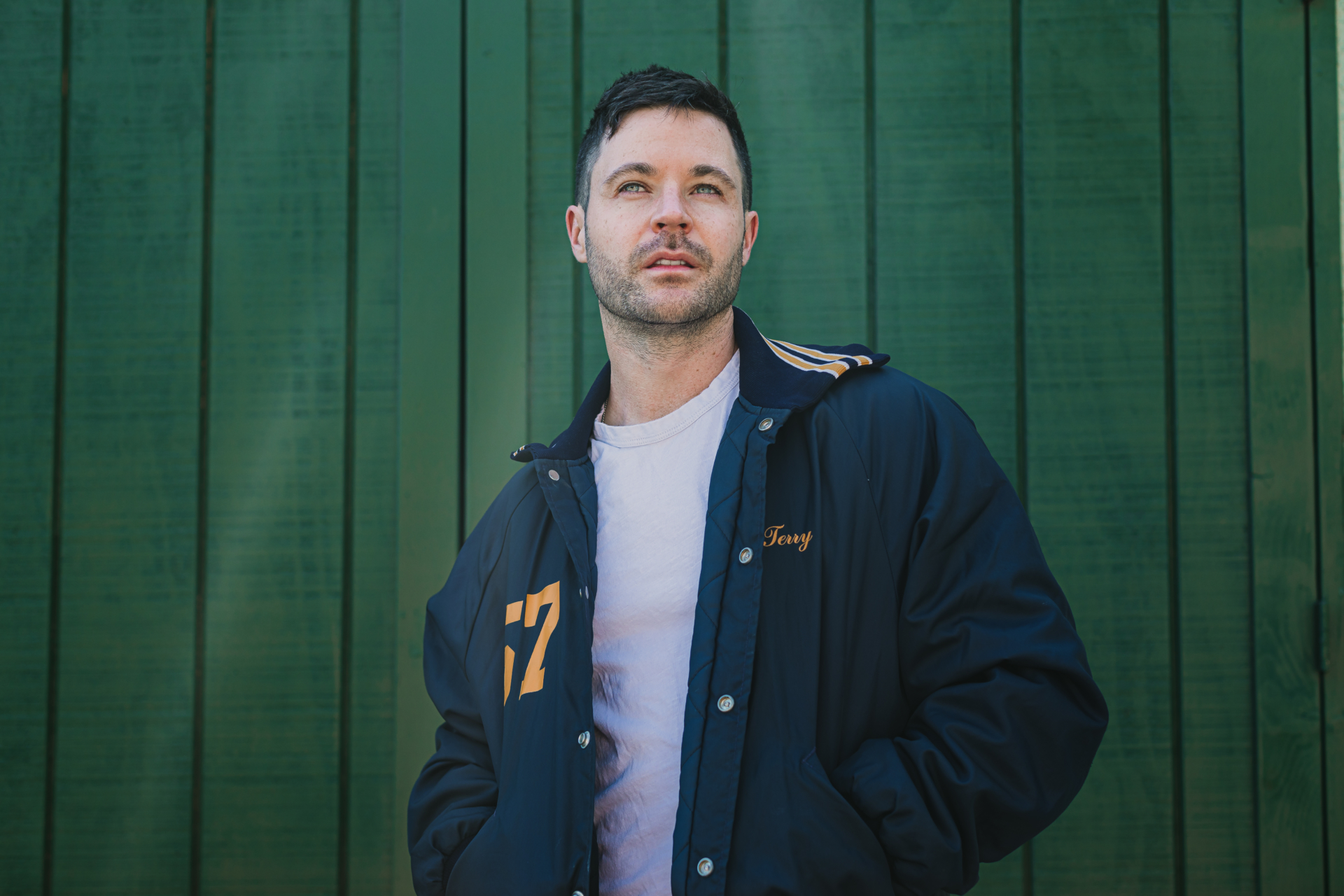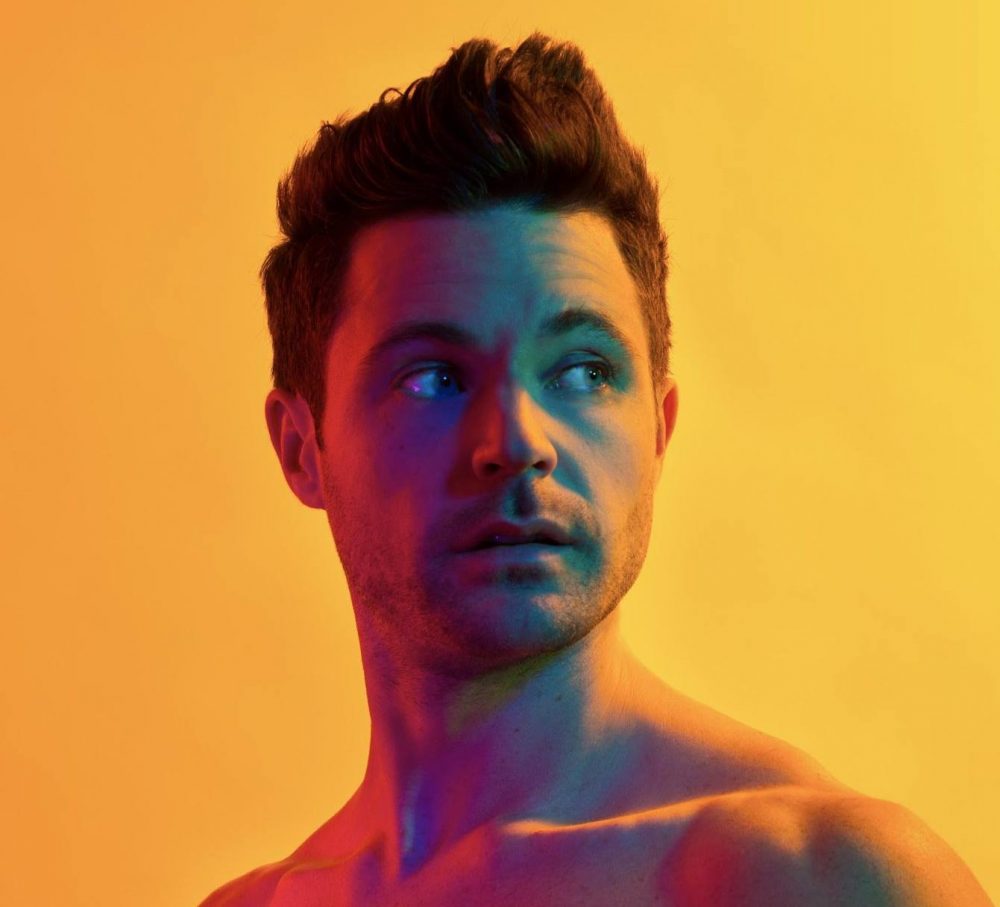
Although country music has a history of not being inclusive to the LGBTQ community, fortunately, artists and fans are beginning to see more representation.
Critically acclaimed singer-songwriter Brandon Stansell is one of many who continues to push boundaries to redefine the genre. In November 2018, CMT premiered his single, “Hometown,” which made history as the first LGBTQ-themed video to be seen on the country video platform. Named one of Rolling Stone’s Top 10 Country Music Videos of 2018, it offers viewers a painful snapshot of a young man coming out to his mom, only to be thrown out of the house to find his own way.
Since “Hometown,” Stansell has gone on to release several music projects, as well as a documentary called Three Chords and a Lie. The film chronicles his trip back to his hometown of Chattanooga, TN, where he invites his estranged Southern Baptist family to hear him perform for the first time. Being ostracized resulted in Stansell spending the past decade healing from pain, finding a new support system, and building a name for himself in the industry with his bold, authentic voice.
Instinct caught up with Stansell to talk more about his artistry and his latest EP, This Must Be the Place, which dropped today. This is the first project Stansell has ever co-produced, and he says it is essentially a full picture of who he is as a person. Select singles from the album were released throughout summer.
https://www.instagram.com/p/CTNmEPuh7C-/
Can you begin by telling us more about the concept and inspiration behind your new EP, This Must Be the Place?
This record is the first thing I have ever co-produced. I co-produced it with my buddy, Julian Hoffman Beechko, and I think just because of that, it has taken on a little bit of a new life, which is a lot more me than anything that I have ever done. I am so proud of the work that I’ve done leading up to this record, but there’s something about being a part of the production process that I have never really been a part of that just makes this record even more special to me.
It’s kind of a combination of light, levity, and a lot of what you would expect coming from me. There are those moments of gravitas, and there are songs that are a little bit meatier. I think the collection of songs as a whole is a lot of fun to listen to, and I am really proud of it. I can’t wait for it to finally get out into the world.
What do you hope listeners take away from the album?
I hope they have fun with it! I kind of see it as, like, a full picture of who I am as a person. It’s fun, it’s flirty, it’s full of my heart, and full of my experiences as queer person. There are songs that are more frivolous and songs that really do kind of pull at your heart a little bit more. For me, it just feels like such a full circle project. I hope people feel that way. I hope they listen to the record and feel like they had fun listening to it, but they got to know me a little bit more.
You put out your first EP in 2015. How would you say you have evolved as an artist since then?
Oh, you can just tell by listening to this record, then listening to the one that came out in 2015. I think everything is better. The writing, the production, the overall concept of the songs. Obviously, I am so proud of everything that I have done, but like anything, the more you do it, the better you get at it. I have had a lot of help along the way and a lot of people come up alongside me to support and really turn up the dial with everything I have been doing. So, I think you really hear that difference. It feels good to still do all the work but feel it has been elevated in a way.

A couple singles from the EP have always been released, such as “Pick Up Where We Left Off” and “Did You Settle Down Too Soon?” How have they been received?
I think pretty well! Everyone who has listened seems to really like them a lot, which I am thrilled about! I hope the full EP gets that kind of reception.
And you released one more last Friday?
Yes, we released one more single last Friday called “Find You.” The song is either the fourth or fifth song on the record, and I covered it with Fancy Haygood, who is a buddy of mine. If you have not listened to his record Southern Curiosity, you should. It is incredible.
I am pretty pumped about “Find You” because it is kind of this perfect blend of what the record is, which is half pop country and half 80s synth. This 80s vibe married to the acoustic guitar, so it is definitely a standout on the record.
Even though each song has a special meaning, is there one song in particular that stands out the most and is closest to your heart?
On this project, there is a song called Thirty-Three that ends the EP. I think anyone that listens to it would say that is a very signature thing of mine. It is very reflective, kind of a mix of hope and hurt. I think it is the song that packs the biggest punch because it’s that moment I think all human beings have, whether you are a singer, songwriter, in the arts or not, I think everyone at some point has this moment where they feel like they are at a crossroads of sorts and don’t feel like they have measured up to what they always aspired to be at that time in their lives. It is kind of a look back and a look forward at the same time. I think it is a lot more hope than hurt, and I love that the EP ends with it.
Have you always had a passion for singing and songwriting?
Yes. I have been singing my whole life and started when I was a little kid, when I was about 6 years old. However, I did not actually start writing until I moved out to the west coast about seven years ago. After I put out my first project in 2015, I have been plugging away ever since!
Why did you want to pursue country music?
Growing up in Tennessee, country music was always coming through the radio. It was the thing that was dialed in. I grew up singing in the church, I belonged to a small Baptist Church out in the middle of Georgetown, TN, but when we would leave church, it was country music on the radio. I fell in love with all the women of country music and those were the shows I went to see.
Some of my first shows were Reba and Amy Grant. It was always the women who really inspired me. When it came time to make music on my own, it almost felt like I did not have a choice. Country music was what I was going to do, but I also love the genre at its core. It is basically just storytelling, and I had a story to tell. It felt like a fit to me.
The country music industry has not always had the greatest views towards LGBTQ people. Do you believe those attitudes and opinions are changing?
I do. I believe the landscape of country music has changed a lot, even in the past few years. Last year, I participated in CMT’s very first Pride writers round at their offices, and they were nice enough to premiere my video, “Hometown,” back in 2018, which was basically the first time they have ever had a queer storyline on the station. That was big, not just for me, but I think for a lot of queer people who do not really see themselves in this space.

I felt like that was kind of a turning point, but I also feel like we went from a time where you felt like there was no representation at all to there being quite a few very high-profile queer artists. It does feel like the sands are shifting.
What are you going to do to keep breaking down barriers?
I think the best thing any queer person or ally can do is just be themselves and be present. Be visible through your music, through your interviews, and just be honest and authentic. If that is the base of what country music is, then we should want to do that. I think people see that. It doesn’t feel like some sort of weird agenda people are pushing. They are just being their authentic selves and expressing it through music.
Last year, you released an emotional documentary called, Three Chords and a Lie. How has it been received, and why did you want to film a documentary about your story?
The title came from an old Harlan Howard quote. He said, ‘the best country songs are basically three chords and the truth.’ However, for queer people, we have not always been able to tell our stories. We have always been asked not to, and I felt it was important to kind of shine a light on where we’ve been and where we’re going. I think we are in a very transitory phase in this genre, and in the world in general. I think people are more willing to recognize that we are more alike than different, and that is a great thing, but because we are still living in this transition period, there is still a lot of hurt. Things happening to queer people that shouldn’t, and for no reason.
When I started writing music, I started writing about my experiences as a queer person. I started writing about what it was like coming out in the south and watching relationships with my parents, siblings, and family members just disappear all in the name of religion. I have always felt like music is this great healer and this great connector. I had written this record that was basically all of my hard stories to tell, and I was approached by the great people of OUTtv about producing it as a documentary. I initially said no; I did not think that would be fun for anyone.

It was a tough thing to make. The premises, going to Chattanooga and playing “Hometown” for the first time. That was tough for me because this was the place where my life fell apart in a lot of ways and where the genesis of those songs came from. That is where all the hurt lived, and to go back and play songs in that place was pretty tough. I feel like we were able to make something that I am really proud of, but I think it has also helped people. Not just queer people, but families and friends of queer people. A part of the documentary is interviewing kids and this charity that I work with called Launch Pad Nashville, who take in homeless youth, and the majority of them just happen to be queer. So, we interview a lot of them.
Yes, this is my story, but it is not unique. It happens to a lot of people all the time. When it was all said and done, I hope it made people like myself feel like they are not alone, and they are not the only people who have ever walked this path. This is the experience. When someone comes out to you, it is a very vulnerable time for them. It is malleable and life-defining in those moments. My hope is that this documentary would be a bridge and light to this experience of what it is like to be queer and from the south.
I was not aware that you were the first recipient of the Rising Star Award at Ty Herndon’s Concert for Love and Acceptance. How did it feel to receive such an honor?
Ty is a great friend of mine, and he puts on this show every year. In partnership with CMT to support GLAAD and MusiCares, obviously, it helps fund those programs, but it has been this light for queer artists and fans of country music who happen to be queer. There is some sort of representation in this genre that they can finally see in a very public way, and I have been so lucky to get to perform at it for the past 3-4 years now.
He started up this award last year and gave it to myself, Harper Grae, and Shelly Fairchild. It meant a lot to me because I grew up listening to Ty, and his story is so intertwined now with mine. I was very honored to get it and it encouraged me to push it more.

You were involved with the concert this year as well?
I was, yes. I sang again this year and I ended up taking over the GLAAD Insta-story as a commentator. It was a lot of fun, but I couldn’t keep up! There was too much happening all at once. I was trying to get everyone’s performance in there, but there were so many good people this year. Ty and Shelly sang, Harper sang, but we had Tenille Townes, Brothers Osborne, Kathy Mattea, Terri Clark – there was a great lineup of people this year, so it was hard to keep up [laughs]. But I had a lot of fun. It’s always a great show, but again, I always think of it from the perspective of someone who loved country music growing up and was so afraid of being gay. To see those worlds come together, it is really something special.
What’s new with your I Love This Country podcast? Who are some upcoming guests we should be on the lookout for?
Last week, I had Ginger Minj on the show. So, if you are a fan of Drag Race, check that one out. We had a great conversation about her upcoming country project. Then we have a couple more guests lined up. We will have my producer, Julian Hoffman Beechko, on the show, and we will talk about the record. So, just stay tuned.
What more do you hope to accomplish with your platform?
At the end of the day, I am a musician, and I want to make music that I am proud of and think people want to listen to. That is kind of the hope for this next record. Obviously, I have a real passion for advocacy work, and I think music plays a big part of that. I also just love to go play shows, see people, and have a good time. That is how I kind of cut my teeth. Learning how to not just be a singer, songwriter, dancer, or performer, but be an entertainer.
I want people to have a good time and really enjoy themselves when they come to see me. I am looking forward to getting this new music out into the world, and hopefully, people will like it. If you don’t, just hush. Don’t tell anyone! I don’t know where we are going, but I hope as I go along this crazy path, I am doing things that make a difference and make people happy.
Before we wrap up, are there any other upcoming projects or anything else you would like to mention or plug?
So much has gone into this record, so buy it, stream it, share it, download it, but most of all, enjoy it!
Connect with Stansell by following him on Twitter, Instagram, YouTube, or visit his official website. This Must Be the Place is now available on all digital streaming platforms.

